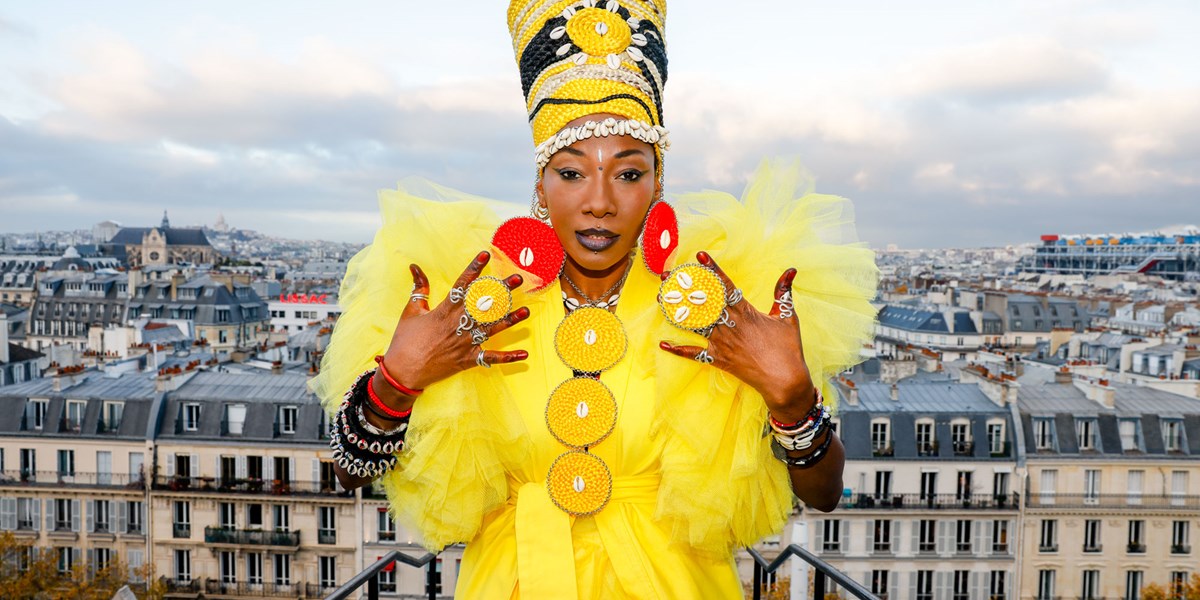Wednesday, August 16, 2023
Fatoumata Diawara: “We have created something, a fusion, a music that I would say is totally new”
By Lucy Hallam
Fatoumata Diawara adds collaboration to the mix on an album of reconciliation and largesse. “It’s time for me to invite you… into my world,” she tells Lucy Hallam

Fatoumata Diawara (photo: Shelby Duncan)

Register now to continue reading

Thanks for visiting the Songlines website, your guide to an extraordinary world of music and culture. Sign up for a free account now to enjoy:
- Free access to 2 subscriber-only articles and album reviews every month
- Unlimited access to our news and awards pages
- Our regular email newsletters

